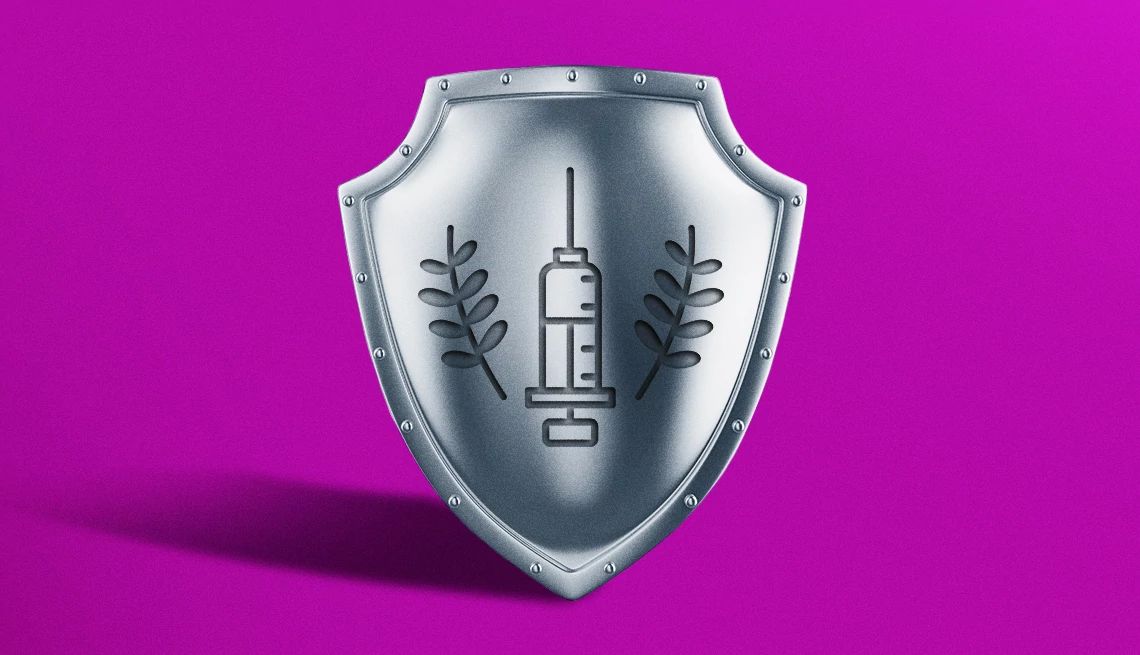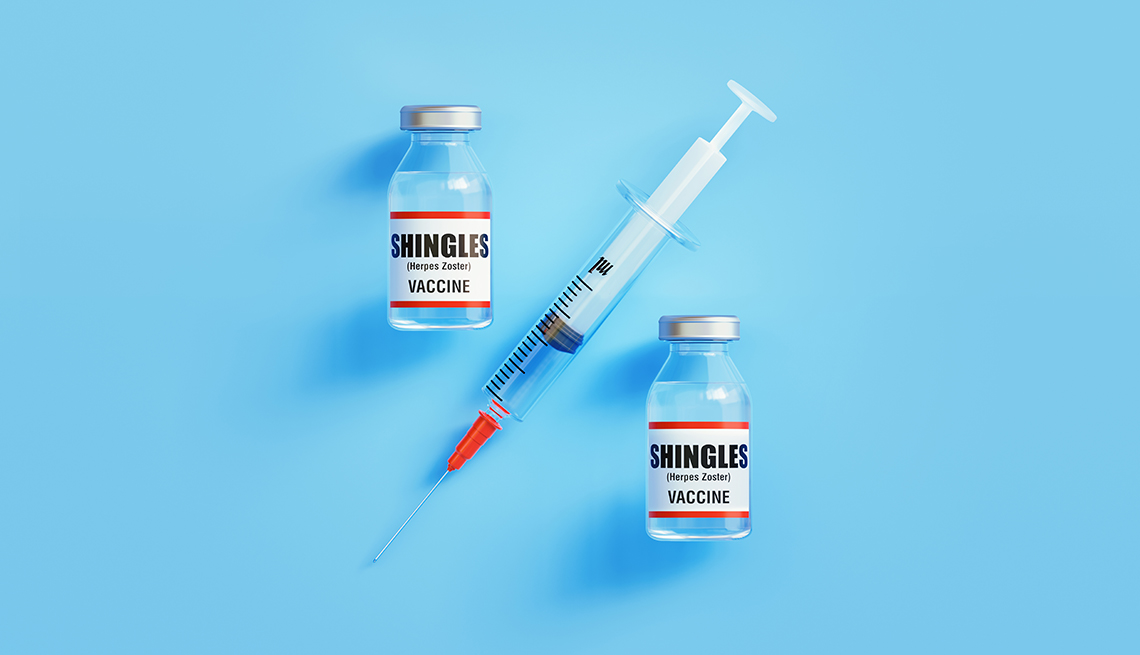AARP Hearing Center


As we get older, our bodies don’t bounce back from colds, the flu and other respiratory viruses as easily as they once did. And while grandchild hugs, holiday gatherings and travel adventures make life rich, they also bring us face-to-face with lots of germs.
Fortunately, there are plenty of steps you can take to lower your risk of getting sick, says Victoria Maizes, founding executive director of the Andrew Weil Center for Integrative Medicine at the University of Arizona and author of Heal Faster, to be published in January 2026.
“And, of course, that’s really our first choice — not to get it to begin with,” she says.
Advice on Healing
Discover your tool kit for bouncing back more quickly from illness and injury with Heal Faster by Dr. Victoria Maizes (Simon & Schuster with AARP Books, January 13). It’s available to order now. Learn more at aarp.org/healfaster.
Maizes recalls working with a kindergarten teacher who was frustrated that she seemed to catch every bug that came her way. After putting some of Maizes’ suggestions into practice, the teacher “went the whole winter without getting a single cold,” Maizes says.
Prevention is important for everyone, she says, but especially for older adults, who are at higher risk of hospitalization and death from the flu, RSV, pneumonia and COVID-19, especially if they have underlying health conditions.
We talked to experts and compiled 25 evidence-based, easy ways to strengthen your defenses and stop those sniffles before they start this winter.
1. Stay up-to-date on recommended vaccines
The research is clear: Vaccines are safe, well-studied and “the best protection we have” against illness, says Dr. David Weber, a distinguished professor of medicine at the University of North Carolina at Chapel Hill and an epidemiologist who oversees infection prevention at UNC Medical Center. For older adults, that means staying up-to-date with their annual flu shot, COVID-19 booster, and vaccines for respiratory syncytial virus (RSV) and pneumococcal infections. While immunizations don’t always prevent you from getting sick, they help your body fight infections early, reducing the risk of severe illness, hospitalization and death.
2. Don’t skimp on sleep
Older adults often struggle to get a good night’s sleep, but sleep is important because your body does a lot of its repair and immune-boosting work while you rest, Maizes says. Research shows that skipping sleep can leave you more vulnerable to colds, the flu and other infections. For example, a study published in the journal Sleep found that people who slept less than five hours a night were about four times more likely to develop the common cold compared to those who got at least seven hours. Other research shows that sleep deprivation can lower your protection from vaccines. Aim for seven to eight hours of sleep a night for maximum immune support. (See 13 Habits for a Good Night’s Sleep.)
3. Exercise regularly
Regular physical activity flushes viruses and bacteria out of your airways and lowers the stress hormones that weaken immunity, according to a 2023 review in the journal Sports Medicine. Exercise also helps your lungs work more efficiently, which makes it harder for viruses to take hold, explains Dr. Paul Thottingal, an infectious disease specialist with Kaiser Permanente in Seattle. You don’t need to run a marathon, he says. Studies indicate low- or moderate-intensity exercise is actually better for immune health than high-intensity exercise. A daily walk, swim or bike ride all count.
4. Stay well hydrated
People tend to drink more in the summer, when it’s hot, but staying hydrated is just as important in the winter, when the air is dry and viruses are circulating, says Dr. Michelle Barron, senior medical director of infection prevention at UCHealth in Colorado. Hydration helps maintain the mucus in your nose and respiratory tract, a key barrier that traps the germs you breathe in before they can infect you. “If your nose gets really dry, think of it almost as like having cracks in your skin, but inside your nose, and then viruses can more easily enter, because they have a gap,” she explains. Women should strive for about 92 ounces of fluid a day, and men 124 ounces a day, to keep the body and immune defenses in top shape.


5. Time your flu shot right
You may see the flu vaccine advertised as early as August, but experts say it’s better to wait until September or, ideally, October. “What has become very clear with the flu vaccine, it’s really only effective for about six months,” says Dr. Richard Martinello, chief medical officer at Yale Medicine. “And because we know the virus can circulate well into the springtime, my recommendation is to wait until October 1.” Just be sure to get it before Thanksgiving, he suggests, adding that people’s lives tend to get busy around the holidays and they may not prioritize vaccinations. Large family gatherings also give viruses a prime opportunity to spread.
6. Take probiotics to keep your gut healthy
Probiotics are known for protecting your gut, but they can also give your body a leg up when it comes to fighting off colds and flu, Maizes says. A 2022 Cochrane review of 23 clinical trials found that those taking probiotics were less likely to come down with upper respiratory infections, had fewer repeat infections and recovered about a day sooner than those who didn’t. You can get probiotics from fermented foods like yogurt, kefir or kimchi. If you’re considering a probiotic supplement, Maizes recommends the site USProbioticGuide.com to find one with some evidence behind it. (For guidance, see How to Buy Probiotics That Work.)
7. Get a higher-dose flu shot
Flu hits older adults hard: Those age 65-plus account for up to 70 percent of flu-related hospitalizations and 85 percent of flu-related deaths, according to the Centers for Disease Control and Prevention (CDC). For maximum protection, the agency recommends that adults age 65 and older request a high-dose flu vaccine or one with an ingredient called an adjuvant. Either can help boost the immune response. “The high-dose formulation was specifically developed for people that were older because of this issue with the immune system just being not quite as robust,” says Barron. “That has nothing to do with your underlying health. It’s just a natural part of aging.” Studies show the high-dose and adjuvanted shots are significantly more effective in older immune systems, she says. (An adjuvant is an ingredient used in some vaccines that helps create a stronger immune response.)



































































))
))








)
)








You Might Also Like
Smart Guide to Vaccines for Adults Over 50
A comprehensive guide to vaccines and their benefits
Insider Secrets on Integrative Medicine
Dr. Victoria Maizes shares 21 ways a holistic approach to health can heal what ails you
Smart Guide to Reducing Inflammation
31 ways to tamp down the chronic condition